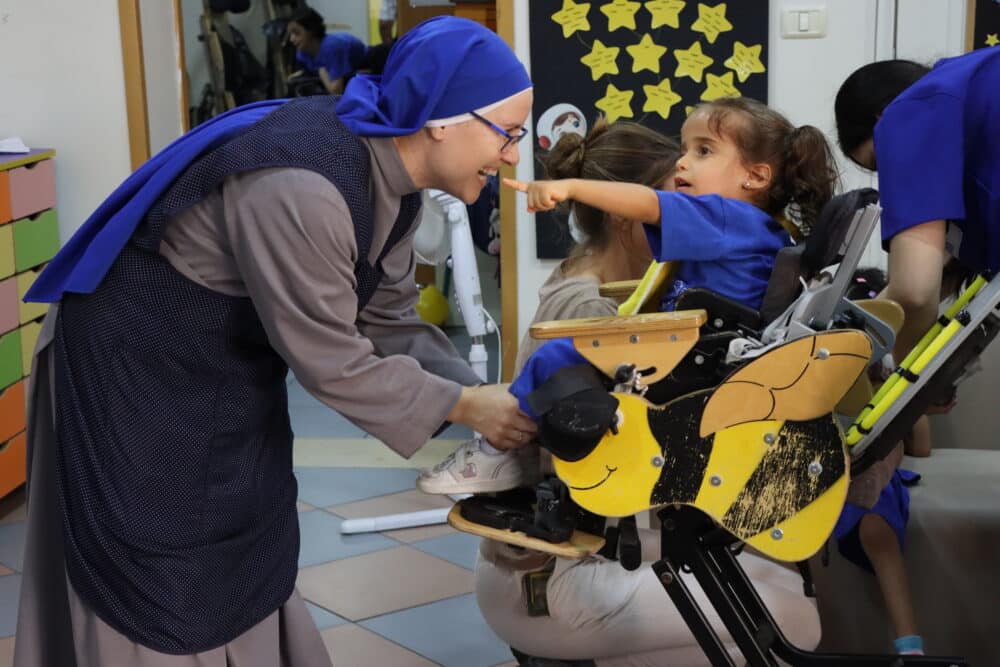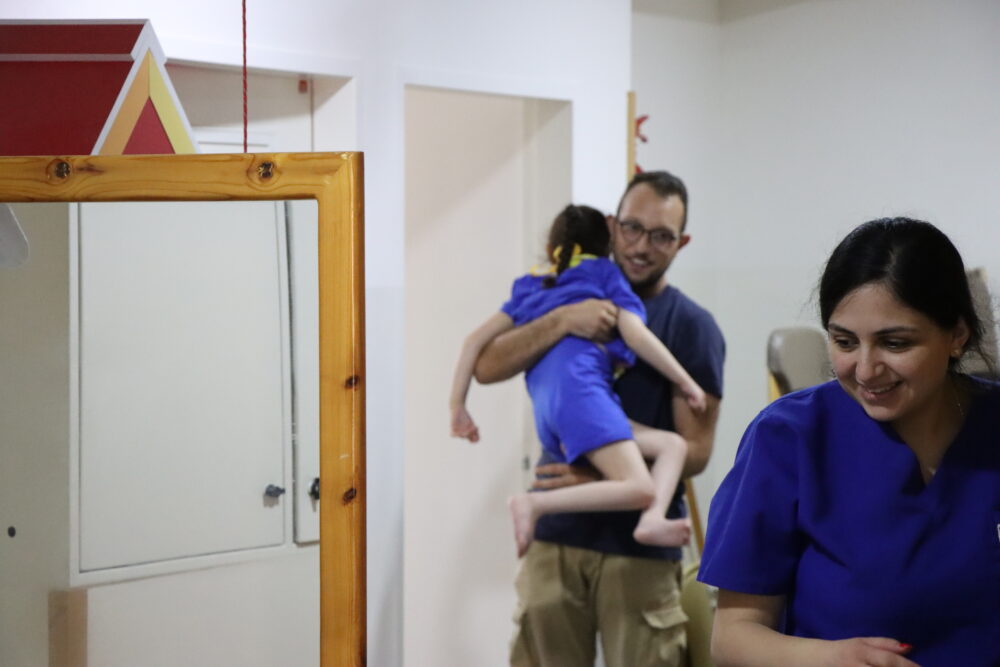A few steps from the Basilica of the Nativity in Bethlehem is Hogar Nino Dios, a small reality that welcomes dozens of young people with severe disabilities. Sisters and priests of the Religious Family of the Incarnate Word work tirelessly here, taking care of these children night and day. In a context of great poverty and social hardship due to continuous tension, disability is often seen as a burden and a social stigma. And so some children born in these conditions are abandoned or left in institutions like Hogar.

The health conditions of children and young people are the most varied, which makes it even more difficult for those who take care of them to be able to guarantee an adequate level of education. In fact, Hogar not only takes care of their health, but also tries to give these children an education, as much as possible. A great difficulty is to create "classes" with the same level of cognitive abilities, which do not depend solely on the health conditions of the student. Sister Allegra, whom we asked to tell us a little about her story and the story of Hogar, confirmed this difficulty, which, however, is not only due to cognitive differences: "We know that, perhaps, every autistic person has different abilities or different attitudes, as well as every single child we welcome here. What makes them even more different, however, are the experiences they have lived: for example, some of them have been abandoned, and inevitably suffer from it: this is reflected in how they learn and how they are with us. They never say 'mom', they know that none of us is the mother, but we are called to know these children as mothers know their children, in order to be able to help them in the best possible way in everything."

And this care for the family of the Incarnate Word shines through perfectly in the stories of Sister Allegra who knows the conditions and needs of each individual child. As he tells us, he gradually shows us the rooms where these children spend their days, between activities, teaching and therapy. Thus we learn that many of them experience tremendous suffering every day between those who, due to some bone malformations, are completely immobilized and those who risk every day that their own ribcage pierces their heart or lung. Unfortunately, most of these children are unable to receive all the care they need, precisely because of the lack of volunteers and health personnel due to the current conflict situation. In the face of this suffering, which also seems to be a great injustice, it is normal to ask why some children are born this way, why they have to suffer in this way and above all how these people manage to stand in front of all these things.
"It is a mystery, that of suffering. We cannot know why God gives some people a normal life and others do not. But I think that these children, those who are most suffering, who cannot speak, who are in wheelchairs or who are forced to lie down, teach me the value of suffering and to suffer in turn. It is as if God is using them to help us save our souls and become better people. These children know like angels, and I always observe that the life of the volunteers flourishes in being with them, as if by being with them one becomes better, more human."
Pro Terra Sancta has financed the construction of a swimming pool within the Hogar facility, addressing the need of many for hydrotherapy treatment. In addition to this, our association has covered the salary of a physiotherapist, so that the living conditions of these children can improve, and so that Hogar can continue his work in the city of the Child Jesus in the best possible way. Especially now, as Christmas approaches.


















